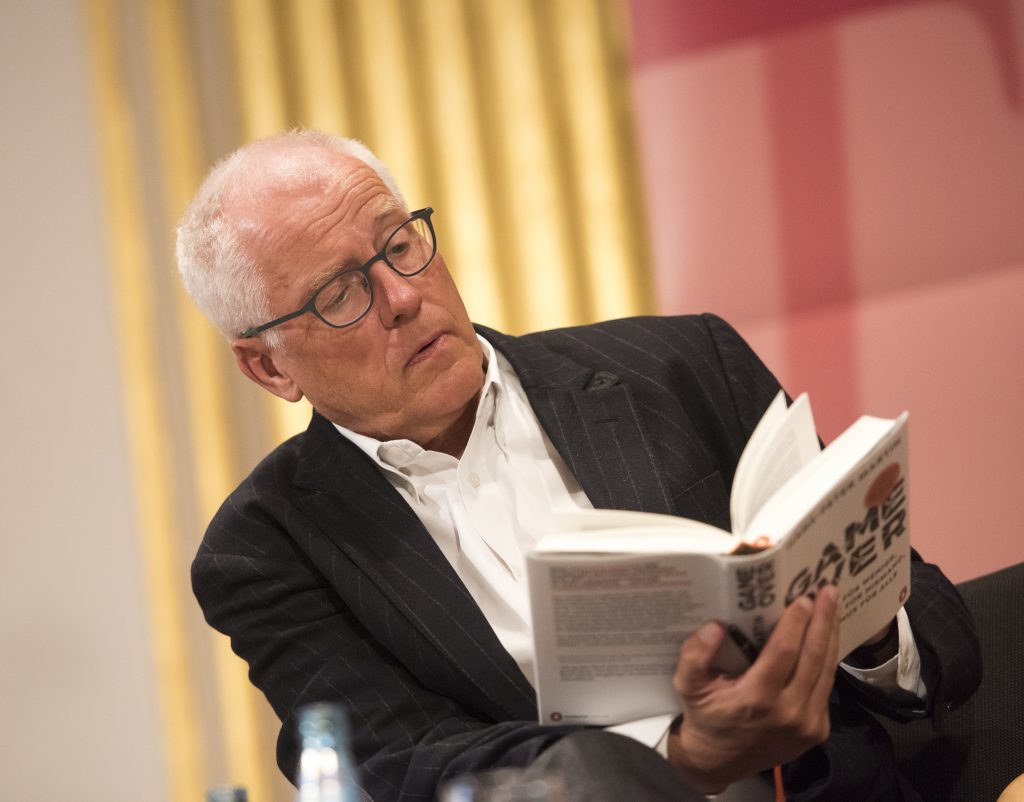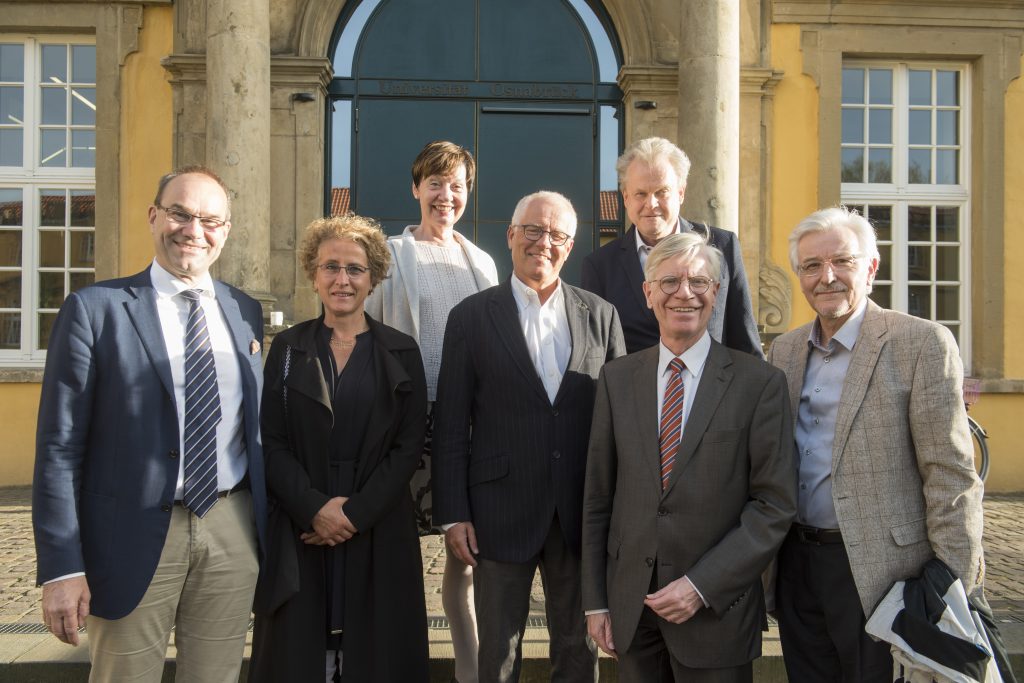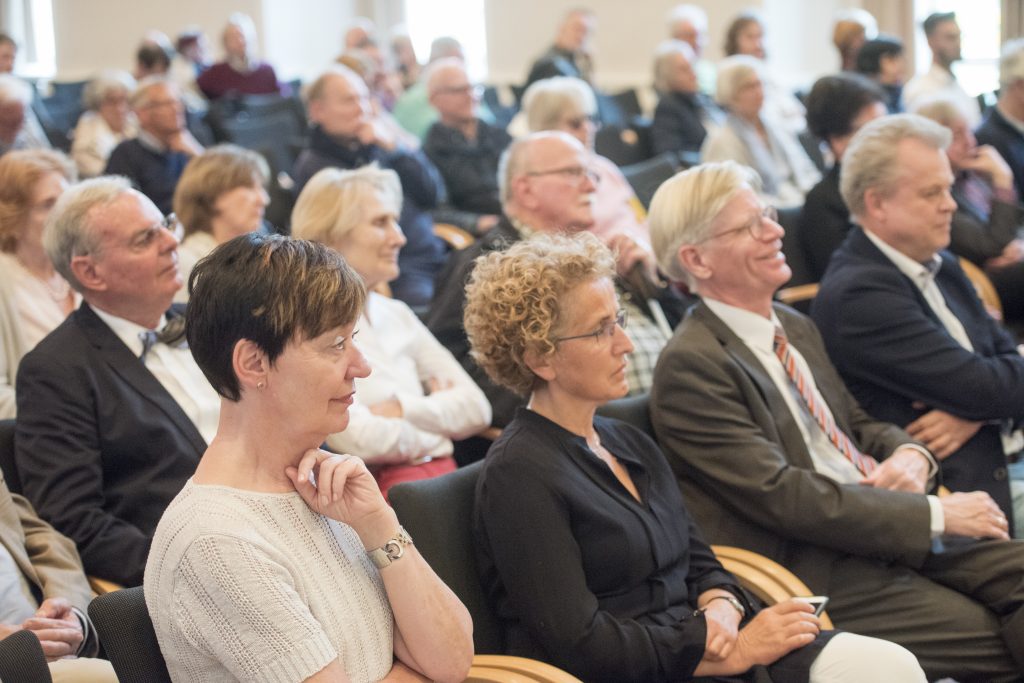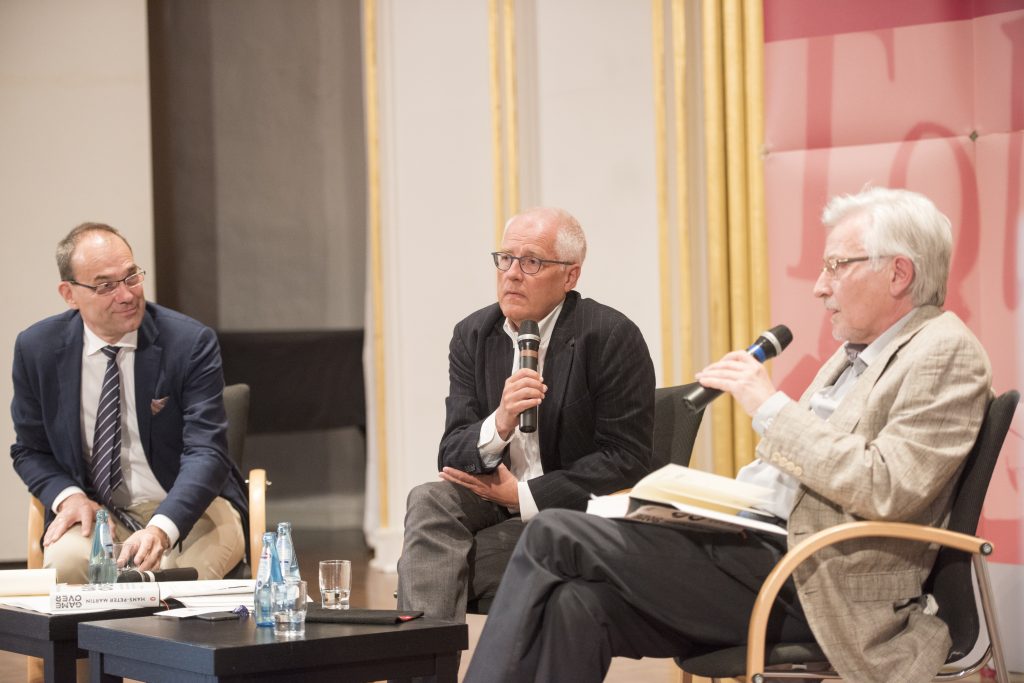Talks and debate, featuring
Moderators
Professor Dr. Christoph König and Professor Dr. Roland Czada, Osnabrück University
Dr. Hans-Peter Martin was born in Bregenz on Lake Constance in 1957. After attending school for a year in California, he studied Law and Political Science at the University of Vienna, where he earned the title Dr. jur. in 1984. While still a student, he worked for the German newsmagazine “Der Spiegel,” and was appointed as their South American correspondent in 1989, moving on to Prague and Vienna in 1996. Martin was an independent Member of the European Parliament between 1999 and 2014. His nonfiction books, including “Bitter Pills” (Bittere Pillen) and “The Global Trap” (Die Globalisierungsfalle) (together with Harald Schumann), have sold over seven million copies worldwide.
Martin’s latest book “Game Over: Affluence for a Few, Democracy for No One, Nationalism for Everyone – and Then What?” (Game Over: Wohlstand für wenige, Demokratie für niemand, Nationalismus für alle – und dann?) was published in 2018. It weaves together a wide variety of developments – from growing inequality and the social divide to trade conflicts, from digitalization and neo-nationalism to the showdown in the EU. Martin especially warns against the Chinese model of “capitalist surveillance communism” and challenges the political center to show the “courage to be radical.” “A stimulatingly contentious book,” wrote “Die Zeit,” which called for “hopefully heated debates on the topic.” The European issues raised by the book were the subject of the Peace Forum: Professor Dr. Roland Czada and Professor Dr. Christoph König spoke to the writer.
April 25, 2019, 7 pm, University Auditorium, Neuer Graben 29 / Schloss
Picture gallery

Dr. Hans-Peter Martin, © Osnabrücker Friedensgespräche | Uwe Lewandowski 
v. l.: Prof. Dr. Christoph König, Heike Kummer, Prof. Dr. Martina Blasberg-Kuhnke, Dr. Hans-Peter Martin, Prof. Dr. Wolfang Lücke, Burkhard Jasper, Prof. Dr. Roland Czada, © Osnabrücker Friedensgespräche | Uwe Lewandowski 
© Osnabrücker Friedensgespräche | Uwe Lewandowski 
auf dem Podium, © Osnabrücker Friedensgespräche | Uwe Lewandowski
© Osnabrücker Friedensgespräche | Uwe Lewandowski

